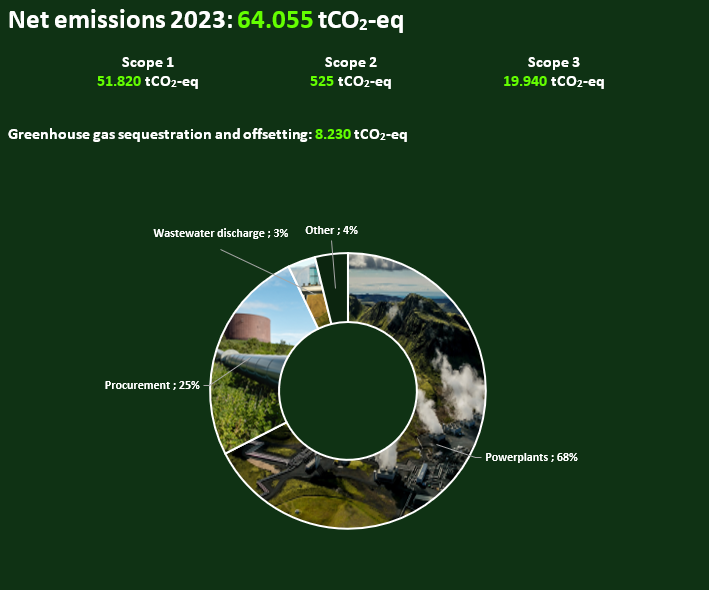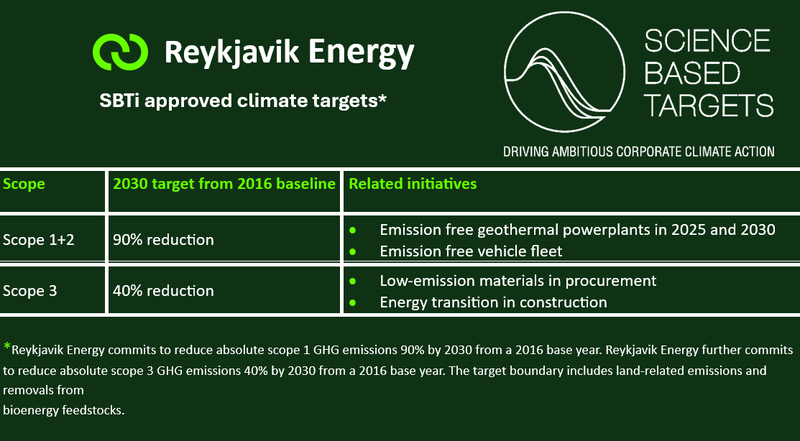Reykjavík Energy's climate account and climate goals
Climate account
Reykjavík Energy publishes a climate account that accounts for about 95% of greenhouse gas emissions from the company's operations. This includes direct emissions from geothermal power plants, wastewater, and the vehicle fleet, as well as indirect emissions in the supply chain where the purchase of goods and services has a significant impact.
An overview of the climate accounting can be found in Reykjavík Energy‘s 2023 Annual Report, and the climate account itself is in a PDF file, which was prepared in English.
Reykjavík Energy accounts for both direct and indirect emissions of greenhouse gases (GHGs) from its operations. Emissions from geothermal power plants (68%) and wastewater (3%) are the most significant sources of direct GHG emissions, while procurement (25%) is the most significant source of indirect emissions in the company's supply chain.
The climate account is conducted according to the methodology of the Greenhouse Gas Protocol and is verified by Bureau Veritas in accordance with the international standard ISO 14064-1.
Key numbers 2023

Climate goals
Reykjavík Energy aims for reduction of greenhouse gas emissions by 90% in scopes 1 and 2, and by 40% in scope 3 by the year 2030, compared to the emission levels of the base year 2016. The climate goal is confirmed by the Science Based Targets initiative (SBTi) and meets the requirements of climate science to keep the temperature increase below 1.5°C.
Furthermore, RE aims to reduce emissions in its supply chain, scope 3, by 90% by the year 2040.
